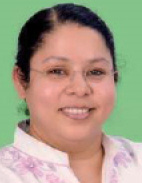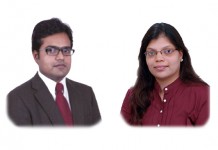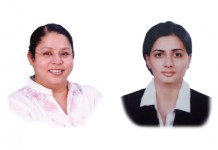Once a patent is granted, the patentee gets the exclusive right to make, sell, offer to sell or import the patented invention. The patentee is also authorized to restrain others from making, selling or importing without its consent.
However, these rights come with a few responsibilities for the patentee that are crucial to keep the patent alive. Two of these duties include paying the requisite fee for patent renewal well within time and providing proof that the patent has been worked in the specified jurisdiction. The latter requires that the patentee provide a statement to the authorities proving that the patent has been worked in a particular jurisdiction. This is needed to ensure that there is no abuse of monopoly by the patent holder.

LexOrbis
Partner
Patent Act
Section 146 of India’s Patents Act requires every patentee or licensee of a granted patent to submit a statement to the Controller General of Patents proving the patented invention has been worked locally on a commercial scale. Form 27 has to be filed with the patent office giving statement on the working of the patent.
Form 27 requires a number of details, as set out below in part.
- Whether the patented invention has been worked:
a. if not worked: reasons for not working and steps being taken for the working of the invention;
b. if worked: quantity and value of the patented product:
• manufactured in India, or
• imported from other countries;
- Licences and sub-licences granted during the year;
- Whether the public requirement has been met at a reasonable price partly, adequately or to the fullest possible extent.
The patent office issues an annual notification to all patentees and licensees reminding them to submit form 27. These statements on the local working of patents can be published by the controller for public viewing.
Local working requirement
It is imperative to refer to section 83 of the act to understand the jurisprudence behind the statement requirement on local working of patents.
Section 83 acts as the guiding principle on the working of patents and highlights the legislative intent behind the grant of patents. The section states that patents are granted to encourage inventions and not to impede the way of innovation.
The section also provides that patents are granted to encourage invention and to secure that the inventions are worked in India on a commercial scale, to the fullest extent that is reasonably practicable without undue delay. Patents are not granted merely to enable patentees to enjoy an importation monopoly the patented article.
Along with other important objectives, the section stresses that patents should not impede protection of public health and nutrition and should act as an instrument to promote public interest, especially in sectors of vital importance for socio-economic and technological development of India.
Local working does not necessarily include local manufacturing and may include importation. However, the patentee must have explored the possibility of manufacturing the patented invention in India.
If the patentee merely imports without having considered local manufacture then this could assist in the grant of a compulsory licence (CL). Also, if importation fails to prove that the patent has been worked in India, then this could make way for a grant of CL.
Failing to comply with the requirements of section 146 may prove fatal, creating a presumption that the patent has not been worked, and paving the way for the grant of CL. If the patent is not worked on a commercial scale after the grant of the CL, this could be revoked by the controller. Furthermore, failure to furnish the information required under section 146(2) may also attract liability under section 122 of the act.
Section 122 provides that failure to supply this information is a punishable offence and the defaulter may be fined up to ₹1 million (US$15,900). A person intentionally furnishing false information can be imprisoned for up to six months with or without fine.
Bayer v Natco
India granted its first CL to Natco, a maker of generic pharmaceuticals, for manufacturing the cancer drug Nexavar.
The patent rights for Nexavar were held by the German pharmaceutical company Bayer. Natco had first approached Bayer for a voluntary licence, however Bayer denied the request.
As a consequence of Bayer’s refusal Natco filed for a CL before the Controller General of Patents.
The controller considered the three requisites for fulfilling a CL grant in India in deciding the issue in this case. The controller’s considerations are set out below.
- The public requirement with regard to the patented drug had not been met as Bayer supplied the drug to 2% of the patient population only.
- The excessive pricing of the impugned drug was far beyond falling within the ambit of reasonably affordable drugs.
- Further, Bayer had failed to sufficiently work the patented drug in India. Bayer had not manufactured the patented drug locally and imported a negligible amount, which nowhere implies that the patent had been worked locally.

LexOrbis
Associate
As a result, CL was granted in favour of Natco to manufacture and sell Nexavar, and was ordered to pay Bayer a royalty. Aggrieved, Bayer challenged the order before the Bombay High Court, which the high court rejected.
Bayer also appealed to the Supreme Court of India, but the Supreme Court rejected the appeal.
It can be safely concluded that the Controller has a duty to monitor the patent, even after the grant. Also, the patentee must make a stringent effort to keep the patent alive.
The working provision is beneficial to the patentee as well as to society at large. It facilitates research and development in the industry by giving an overview of a particular invention and also gives an assessment of the patent system in the country. Once all this information is available with regard to an invention, it becomes easier for those who wish to apply for a licence to negotiate the licence terms with the patentee as per the assessment of the patented invention.
Manisha Singh Nair is a partner and Zoya Nafis is an associate at LexOrbis
709/ 710, Tolstoy House, 15-17 Tolstoy Marg New Delhi – 110 001 India
Tel: 91 11 2371 6565
Fax: 91 11 2371 6556
E-mail: manisha@lexorbis.com
zoya@lexorbis.com
www.lexorbis.com






















